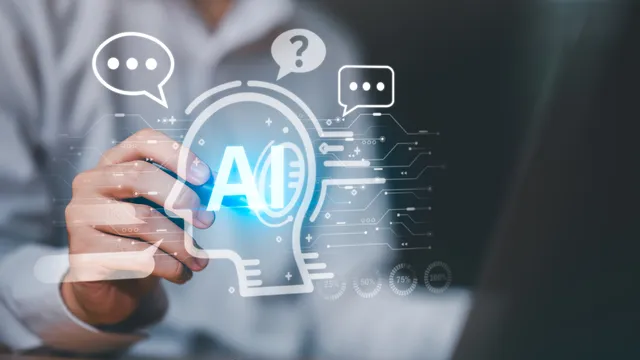Impact of Agentic AI Based Workflows in Future Workplaces

Are you looking for comprehensive details about how agentic AI based workflows will dominate the future workplaces? Here’s a detailed article that answers the question. The article shows the importance of agentic AI based workflows in the workplace and how each key component plays a crucial role transforming the workplace.
What is Agentic AI?
Agentic AI is a type of artificial intelligence that is capable of making independent decisions and taking actions accordingly to achieve pre-determined goals. Unlike traditional software and artificial intelligence that operate on pre-determined rules and require step-by-step guidance and prompting, agentic AI can automate, adapt and initiate, that too without constant human oversight. To do that AI agents communicate with each other and other software systems.
As an agentic AI is built using complex algorithms that leverage complex reasoning and large language models, it can facilitate intuitive and effective user interactions. Workflows based on agentic AI enables businesses to expand automation beyond defined tasks and tackle complex business processes with a more context-aware approach and dynamic that enhances their productivity.
What are Agentic AI Based Workflows?
Agentic AI based workflows are processes where human intervention is minimal and most of the complex and iterative processes are automated allowing business to focus more on the core objectives. These workflows have multiple AI agents that simplify the whole process by breaking it down, adapting and refining. They also have AI’s core components including reasoning, planning and tools for efficient execution of complex tasks.
Agentic AI based workflows follow a multistep and iterative approach to handle complex processes which makes them more flexible and dynamic compared to robotic process automation. These workflows leverage AI agents to adapt to real-time, unexpected conditions and gather information, verify details, solve problems, make decisions and take appropriate actions.
Also Read: How Artificial Intelligence Is Revolutionizing Mobile App Development
Key Components of Agentic AI Based Workflows
The agentic AI based workflows sit at the top of the pyramid when it comes to dominating workplaces and helping businesses streamline operations to boost productivity. There are some crucial components in them that make it possible.
AI Agents
AI agents may be the most crucial part of the agentic AI workflow. They are specialized software programs that have their own personalities, roles and functions like performing complex tasks, learning from their interactions, observing data inputs, making decisions based on their programming, and taking actions to complete defined tasks within a workflow.
Apart from working distinctively, they also work together in a system by sharing information and coordinating with each other. These AI agents are built on a strong LLM foundation and incorporate functions to provide conversational interactions, run automations, connect to the systems and search information.
Robotic Process Automation
Robotic process automation might be a totally different artificial intelligence workflow from agentic AI based workflow automation, but it’s still significant in handling repetitive tasks and rule based tasks. For this reason developers include RPA into an agentic AI based workflow to make it more effective.
Robotic process automation is also a key component in agentic AI workflows that also enables them to accurately execute the rule-based operations across applications. Integrating with the AI workflows, RPA becomes more adaptive to varying conditions and inputs. For example, the combination of Agentic AI and RPA can be used to make structured datasets out of videos, audios, etc.
Natural Language Processing
Another key component of the agentic AI workflow is natural language processing, it allows AI agents to mimic different human behavior through understanding, interpreting and generating human language. It uses machine learning and computational linguistics to make it happen. The role of NLP in agentic AI workflows is to provide better user experience.
The NLP integration eliminates the cost and need of training or programming knowledge to AI agents in the workflow. It plays a crucial role for agentic AI based workflows in content generation, sentiment analysis, and customer support. NLP is basically a toolkit for agentic AI workflows that helps create conversational agents and chatbots to engage with users.
Workflow orchestration
Workflow orchestration is another key component of agentic AI that makes using it easier for the organizations. It’s basically a process that stands for coordinating and managing multiple tasks and components like defining action sequences, ensuring efficient and on-time execution of tasks, and managing dependencies in the agentic workflow.
Work orchestration tools offer a visual interface to design and monitor workflows enabling companies to manage complex processes of integrating multiple technologies and systems. It is a smooth execution of a detailed process to keep the workflow seamless.
How Agentic AI will Transform Future Workplaces
From understanding the key components of agentic AI, one thing is guaranteed and that is revolutionization of workplaces. According to multiple reports online, integration of agentic AI workflow into workplaces can increase productivity by 40%. With agentic workflows, businesses can experience real change in the workplaces.
Autonomous Project Management
Agentic AI is evolving everyday and changing the way humans manage projects. It will take over the tasks like timeline adjustments, risk management, and resource allocation as it has the ability to analyze huge data in no time, identify patterns and make informed decisions. It allows humans to focus on strategic and creative work. As the workflow has AI agents that allows it to remain flexible and adapt which makes it beneficial in project management. It can detect the disruptions and reduce them to keep the project on track.
AI Decision Making
Another way agentic AI will transform future workplaces is by helping managers and executives make decisions based on outcomes. Apart from that it also models scenarios, recommends strategies, and assess risks. Agentic AI is going to revolutionize decision making allowing leaders to emphasize on strategic thinking, problem-solving and creativity and make informed decisions with greater accuracy and speed.
Ethical Oversight and Cybersecurity
With a fast changing world, the threat to cybersecurity is on the rise. Everyday hackers develop new methods to bypass the firewall and breach the sensitivity data. Integrating agentic AI into the workplace will revolutionize the way businesses look at data security and privacy. Built on complex algorithms and trained with huge datasets, it can predict the upcoming cyber threats and prevent data breaches. Even after being autonomous, it will still be controlled by humans who will keep ethical oversight on the agentic AI workflow.
Predictive Resource Management
The entire game of resource management is going to get transformed with agentic AI workflows integration into workplaces. It will allow the organizations to anticipate the needs of infrastructure, staff and supplies. Businesses will train it on historical data and existing trends to make adjustments and allocate resources accordingly to prevent inefficiencies or shortages on-the-fly. Agentic AI has the ability to detect future needs by analyzing the data from supply chain software, HR systems, and facilities management tools.
Also Read: Incorporating AI into Your VA Workflow: What You Need to Know
Conclusion
At the end, it is clear that agentic AI workflows are going to completely transform the future workplaces with their AI agents, predictive resource management, AI decision-making, work-flow orchestration, natural language processing, autonomous project management and more. To develop and integrate agentic AI based workflows into your workplace you’ll require expert AI developers.






